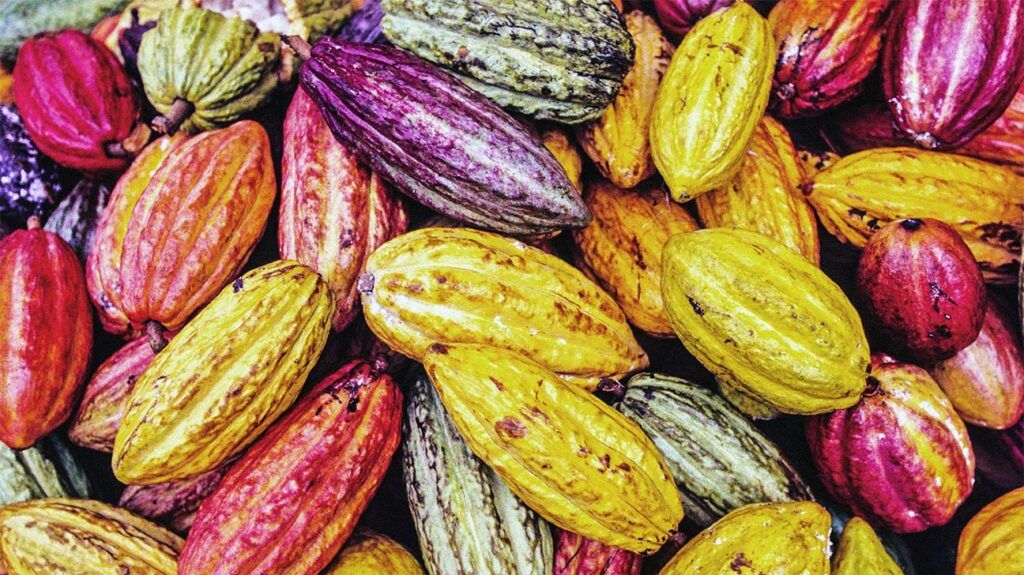
- Daily cocoa extract supplements may improve cognitive health among older people consuming a poor-quality diet, a new randomized controlled trial suggests.
- The authors observed that cocoa extract resulted in no cognitive benefit for older people who regularly consumed a high quality diet.
- Cocoa is rich in flavanols, which may relieve oxidative stress and inflammation.
- More research on the potential cognitive benefits of cocoa is still needed.
A recent study suggests that daily cocoa extracts may promote cognitive health in older people with habitually poor diet quality.
No cognitive benefit from daily doses of cocoa extract was observed among the participants in the study overall.
However, the study’s authors report a “borderline trend” for individuals whose diets are poor quality.
The participants in the study were a clinical cohort of the COcoa Supplement and Multivitamin Outcomes Study (COSMOS), a randomized clinical trial (RTC) conducted at Brigham and Women’s Hospital in Boston, MA.
This larger trial, involving 21,442 older Americans, investigated the benefits of a daily cocoa extract supplement for cognition and a daily multivitamin-mineral supplement for cardiovascular disease and cancer prevention.
The study was partially funded by Mars Edge, a division of Mars Inc. dedicated to nutrition research. Other funders included the U.S. National Institutes of Health, the FDA, Harvard Catalyst, Contract Pharmacal Corp, and Pfizer Consumer Healthcare.
The finds are published in The American Journal of Clinical Nutrition.
Is cocoa good for cognitive function?
Studies of the effects of cocoa on cognitive health, say the authors, have been inconsistent.
The mild effect seen in this study for people with a low quality diet suggests a further direction for research.
The study involved 573 older individuals whose mean age was 69.6. Of this group, 49.2% were women.
Each participant was given a comprehensive cognitive assessment at the beginning of the study, with follow-up testing over the next two years.
Some individuals in the study received a daily supplement of 500 milligrams of cocoa extract, including 80 mg of antioxidant epicatechin, while control subjects received a placebo.
A total of 492 people completed two-year assessments.
For the group overall, no improvement in cognition was observed after two years, specifically for global cognition, episodic memory, and executive function or attention for those receiving cocoa supplements compared to those given placebos.
Do cocoa flavanols affect cognition?
Cocoa is rich in flavanols, a subtype of flavonoids, natural compounds found in plants, as well as in fruits and vegetables.
“Our trial results shed light on for whom cocoa extract shows cognitive benefits,” said the study’s first author, Dr. Chirag M. Vyas.
The study does not specify the mechanism underlying the beneficial cognitive effect flavanols may have on cognition for people with a poor diet, but Dr. Vyas suggested a hypothesis: “Cocoa flavanols may enhance cognitive function outcomes in older adults with poor diet quality by reducing oxidative stress and inflammation.”
Research has associated an unhealthy diet for older people with “elevated oxidative stress and systemic levels of inflammation — processes associated with cognitive aging.”
Dr. Vyas hypothesized that consumption of dietary cocoa flavanols may reduce such stressors on cognition, and may also be “modulating other neuroprotective mechanisms.”
A 2021 trial observed a beneficial effect of cocoa flavonoids on cognitive aging over a 12-week follow-up period.
Nutritionist Kristin Kirkpatrick, who was not involved in the study, told MNT: “I advise [clients] to get plenty of flavonoids amongst other plant compounds, etc., and often recommend cocoa [and] dark chocolate as a great option with abundant culinary variability.”
Dr. Vyas said further research is needed to illuminate the subtle connection observed in the study.
Is there a difference between chocolate and cocoa extract?
As to whether there’s a difference between cocoa extract and cocoa or chocolate, Dr. Vyas responded, “This question does not have a straightforward answer.”
“The specific impact on cognitive health between cocoa extract, cocoa powder, and chocolate may vary due to differences in their composition,” he said.
“For example, cocoa extract is derived by isolating specific compounds from cocoa beans, potentially concentrating beneficial elements for cognition, while cocoa powder is made by grinding roasted cocoa beans, retaining some natural compounds, but possibly in lower concentrations.”
“Although COSMOS cocoa extract supplement encompasses all naturally occurring bioactive compounds of the cocoa bean, we were unable to test the cognitive benefits of different formulations, individual components of cocoa extract, or different amounts of cocoa flavanols in this trial.”
— Dr. Chirag M. Vyas, first study author
Kirkpatrick said that if a person is interested in the “flavonoid benefits from the cocoa bean, then consumption of a 75% or greater dark chocolate, or using pure cocoa in daily meals and snacks — putting it on oatmeal, apples, etc. — would provide that.”
“Pure raw cocoa does not typically have any added sugar or fat, so consumers should look for that 100% cocoa,” said Kirkpatrick.
“Cocoa can be used in multiple manners such as [being] mixed in yogurt, or making recipes like chocolate mousse, etc.,” she added.
More research on the effects of cocoa for brain health needed
Dr. Vyas said he is hesitant to recommend cocoa consumption for strengthening cognition.
“The results of our trial suggest that there were no overall cognitive benefits associated with using cocoa extract supplements among older adults,” he said.
While the study finds that there may be potential benefits in consuming cocoa for older people who do not adhere to a healthy, balanced diet, he is not eager to promise a meaningful benefit just yet.
“Despite these potential findings, further studies are required to gain a deeper understanding of the effects of cocoa flavanols on cognition, especially in more diverse populations and among individuals with poorer diet quality.”
— Dr. Chirag M. Vyas, first study author
Source: Read Full Article
